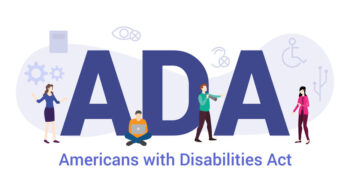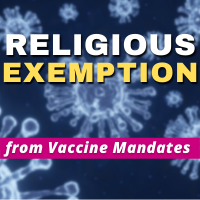By Mike O'Brien Get ready to take a new look at your employee handbook. The National Labor Relations Board (NLRB) is widely expected to issue a decision soon that will mean increased scrutiny of common types of workplace rules, including civility and conduct rules. In a case pending before the Board, its General Counsel submitted a brief last month urging a return to an … [Read more...] about Civility & conduct rules, marijuana, and website access & ADA on the HR radar
employment law
Religious discrimination and pitfalls for diversity efforts
By Mike O'Brien Religious discrimination An Asian-American engineer who worked for a municipal utility in Stockton, California filed a lawsuit claiming that city officials belonging to the Church of Jesus Christ of Latter-Day Saints (the “Church”) sought to recruit, hire, and promote members of their own faith and that he was denied a promotion because he was a member of the … [Read more...] about Religious discrimination and pitfalls for diversity efforts
New technical guidance on religious exemptions to vaccination
By Mike O’Brien EEOC Issues New Technical Guidance on Religious Exemptions to Vaccine Mandates On Oct. 25 the Equal Employment Opportunity Commission (EEOC) issued new updates to its Covid-19 technical guidance. Specifically, the EEOC seeks to clarify employer obligations and employee rights related to religious exemptions to vaccine mandates. The guidance addresses the … [Read more...] about New technical guidance on religious exemptions to vaccination
“Long COVID” looms ahead as leading ADA claim?
By Mike O’Brien Legal commentators are already predicting that the condition now known as “long COVID” may displace back conditions as the leading impairment asserted in charges brought under the Americans With Disabilities Act (ADA). CNN recently reported, “A large study has revealed that one in three Covid-19 survivors have suffered symptoms three to six months after … [Read more...] about “Long COVID” looms ahead as leading ADA claim?
All private-sector employers with 100 or more employees must mandate vaccination or a weekly negative COVID-19 test
By Mike O'Brien President Biden spoke from the White House Sept. 9 to announce his new Path Out of the Pandemic Plan. Among other things, President Biden has instructed the Occupational Safety and Health Administration (OSHA) to develop rules that will require private-sector employers with 100 or more employees to mandate that their employees be vaccinated or receive a weekly … [Read more...] about All private-sector employers with 100 or more employees must mandate vaccination or a weekly negative COVID-19 test
The least you need to know about at-will employment
By Paul Edwards At-will employment can seem freeing for employers, but it can also provide a false sense of security. On the one hand, it’s liberating to be able to terminate employees for any lawful reason at any time. On the other, unlawful termination—or activities that can be construed as such—can put you at risk for litigation and are not protected by the tenants of … [Read more...] about The least you need to know about at-will employment
New rules for wellness programs & marijuana legal in more places
By Mike O'Brien bio Employment law continues to change rapidly with a change in federal government administration and the continuing pandemic. As manager of a medical office, it’s just one more thing to keep up with. Here are a few recent developments. New rules coming for employer wellness programs On Jan. 7, 2021, the EEOC issued proposed rules related to what incentives … [Read more...] about New rules for wellness programs & marijuana legal in more places
Who’s an independent contractor? DOL explains
By Mike O'Brien bio DOL tries to clarify independent contractor definition The US Department of Labor (DOL) has proposed what it believes is a simplified definition of independent contractor (IC) for purposes of applying wage provisions of the Fair Labor Standards Act (FLSA), which applies only to employees. The new DOL proposal still focuses on the factors of economic reality, … [Read more...] about Who’s an independent contractor? DOL explains
Top 10 questions an employer should ask before returning employees to work
By Mike O’Brien bio As various states and municipalities across the country lift shutdowns and begin easing COVID restrictions, employers are faced with complex questions about safely bringing their employees back to the workplace. We’ve compiled the top 10 questions every employer should consider before returning employees to work. How do we implement proper infection … [Read more...] about Top 10 questions an employer should ask before returning employees to work
Employment Law Update: The New Year’s Resolutions Edition
By Mike O'Brien bio A lawyer and doctor were talking together at a New Year's party when the doctor complained about how people always asked her for free medical advice. She said to the lawyer, "People probably always ask you for free legal advice…as a fellow professional, how do you deal with it?" The lawyer thought about it, and then said, "I always answer their … [Read more...] about Employment Law Update: The New Year’s Resolutions Edition








